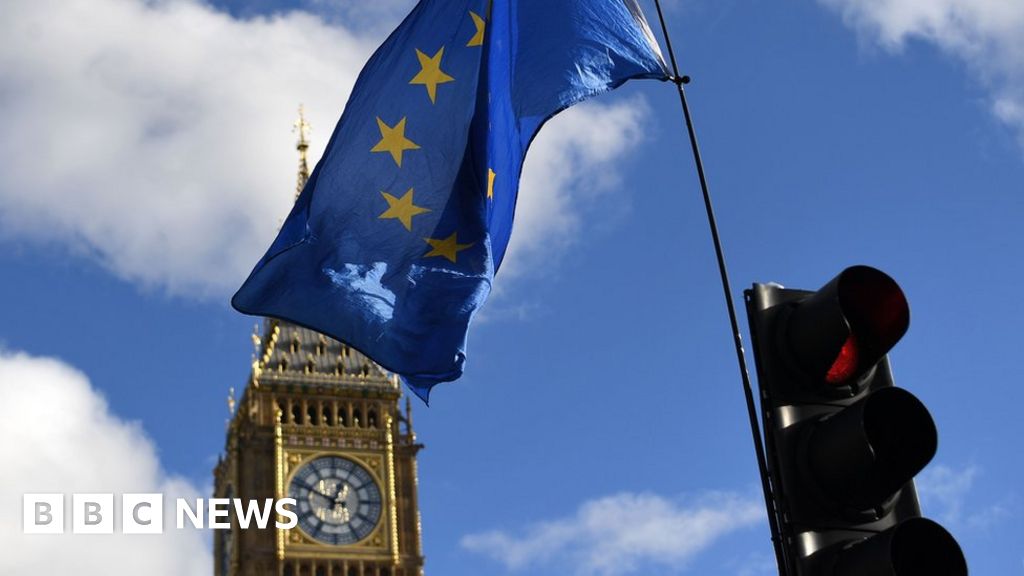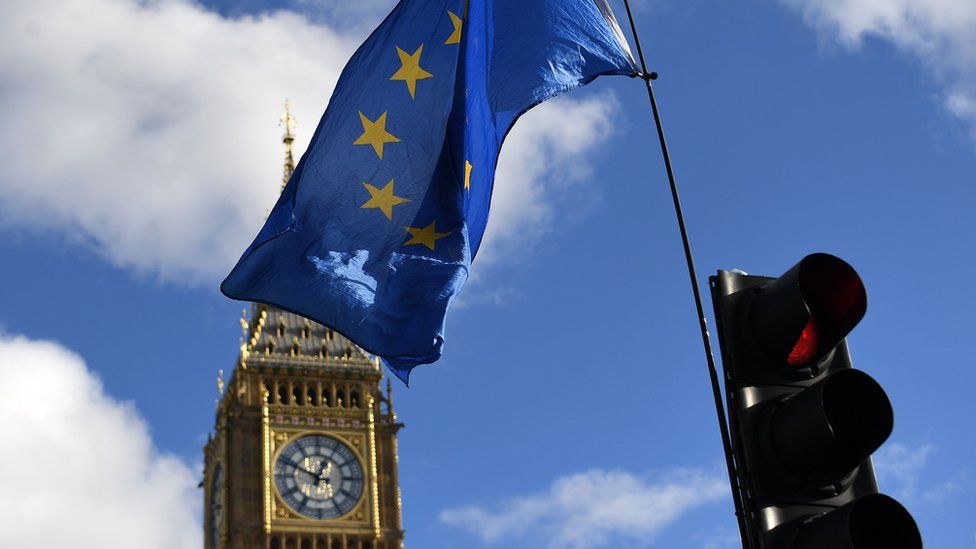 EPA
EPAThe government does not want to make any fundamental changes to the UK’s relationship with the EU, Home Office Minister Robert Jenrick told the BBC.
It follows reports that some in government want to move towards a Swiss-style deal, with less trading friction and more migration.
Mr Jenrick said the UK wanted to improve trading links and co-operation on migration and security issues.
But he said there was no desire to re-open the existing Brexit agreement.
The minister, who supported the Remain side in the 2016 EU referendum, argued that the UK had settled on the right approach following “a big debate”.
He said the current deal allowed the UK to “secure our borders and… pursue the opportunities of Brexit”.
He added that the arrangement allowed the UK to “walk away” from freedom of movement, ensured European judges had no jurisdiction in British courts and meant the UK did not have to pay money to the EU.
The story in The Sunday Times that senior government figures were considering pursuing a Swiss-style deal, concerned some Brexiteers in the Conservative Party, with former minister Simon Clarke saying: “I very much hope and believe this isn’t something under consideration.”
- Solve worker shortages with immigration – CBI boss
- Swiss firmly reject end to free movement with EU
- Cuts, Brexit and the political battles to come
“We settled the question of leaving the European Union, definitively, in 2019,” he tweeted.
Lord David Frost, who negotiated the current deal, said: “I hope the government thinks better of these plans, fast.”
Switzerland is not a member of the EU, but does have a several agreements with the bloc, and has access to the single market for most of its industries. It also pays into the EU budget and has freedom of movement, meaning EU citizens can live and work in the country.
Last week, Chancellor Jeremy Hunt said he hoped the UK would be able to remove trade barriers with the EU but added that it would “take time”.
“Having unfettered trade with our neighbours and countries all over the world is very beneficial to growth,” he said.
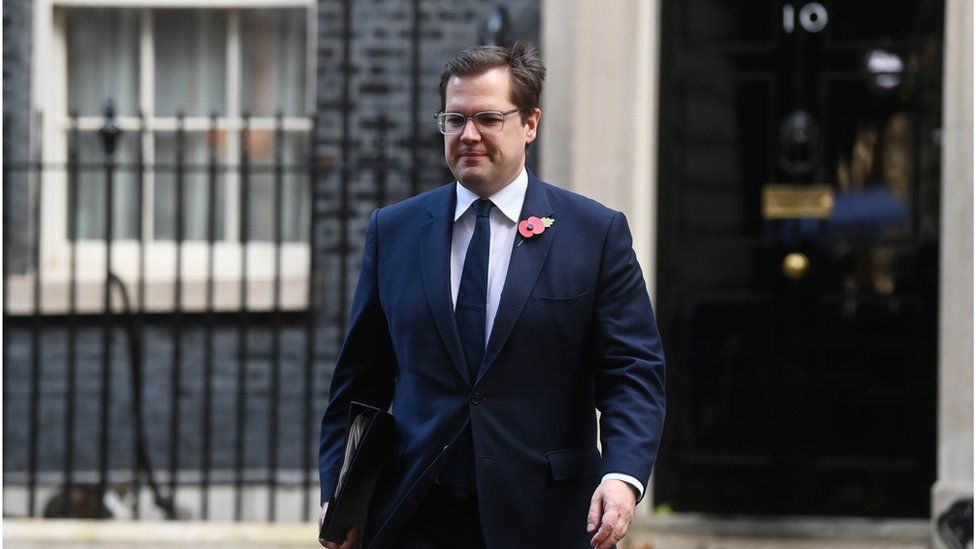
He was speaking after delivering his Autumn Statement in which he confirmed the UK was in recession and that the economy was due to shrink further.
The chancellor’s statement was accompanied by an economic forecast from the Office for Budget Responsibility which said Brexit had had a “significant adverse impact” on UK trade.
Asked if Brexit had damaged UK trade, Mr Jenrick said it was hard to separate the disruption caused by leaving the EU, the coronavirus pandemic and the war in Ukraine.
“There will be challenges and disruption as a result of fundamentally altering our relationship with the EU,” he said but added that it was too soon to say whether or not that is going to be to the UK’s long-term economic disadvantage.
He said the government was determined to take advantage of the opportunities provided by Brexit, pointing to plans for the regulatory regime of the financial services, life sciences and the green economy.
-
Solve worker shortages with immigration – CBI boss
-
28 minutes ago

-
-
Cuts, Brexit and the political battles to come
-
2 days ago
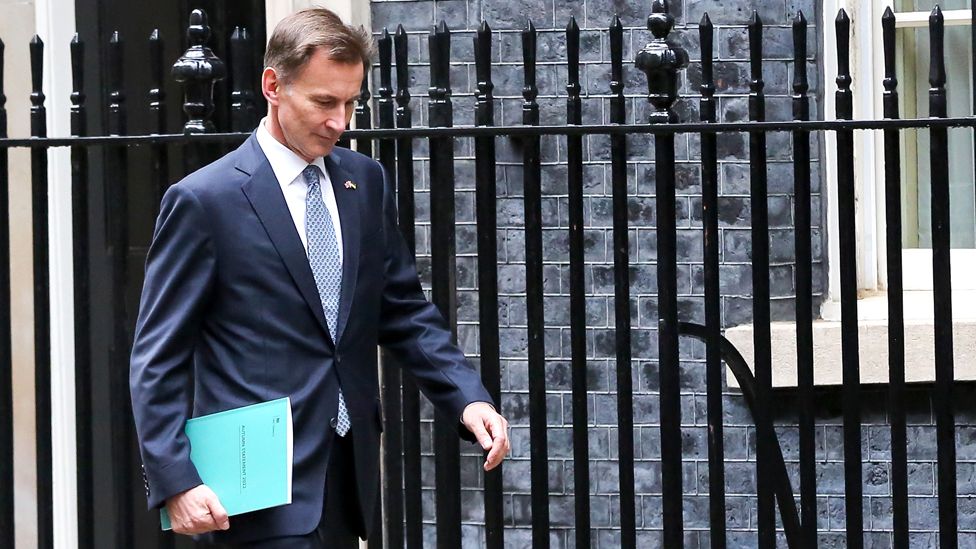
-
-
Jeremy Hunt has no plan for growth, says CBI boss
-
19 hours ago
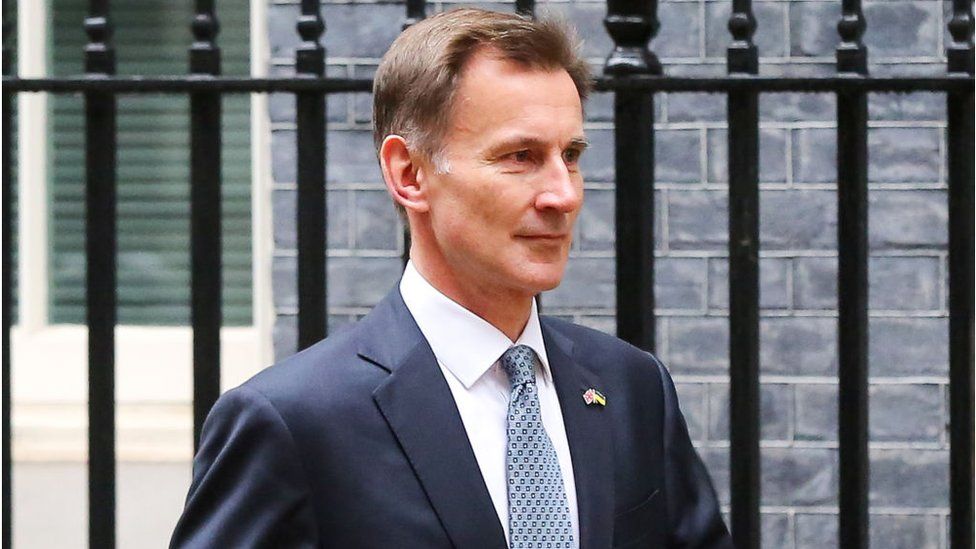
-
-
Swiss firmly reject end to free movement with EU
-
27 September 2020

-
